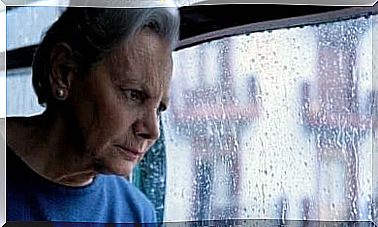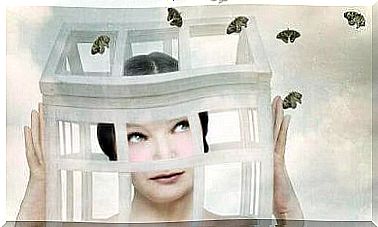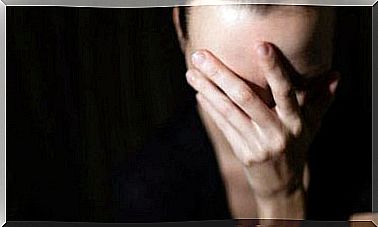Psychotic Depression – A Recurrent Syndrome
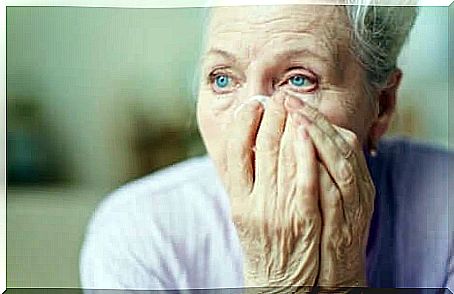
Severe depression is a serious clinical disorder. However , in addition to being severe, psychotic depression is also debilitating and frightening. Furthermore, it happens more often than you probably think. In fact, it is especially common in geriatric patients. Symptoms include hallucinations, delusions, sadness and guilt. Sometimes patients even do self-harm. This mental state undoubtedly needs more public attention.
As we mentioned above, this disease requires an early diagnosis. This is because many of the patients who attempt suicide commit it when they are in the acute phase of the disorder. What often happens is that a patient may try to take their own life when they have had severe depression for some time. However, they have not been diagnosed. Or they may try to commit suicide because they have given up treatment.
With an early diagnosis and intervention, the prognosis for this disease is good. However, it is of utmost importance for the patient to be treated early. The patient also needs a good social support system.
Read more about how this type of depression manifests itself below.
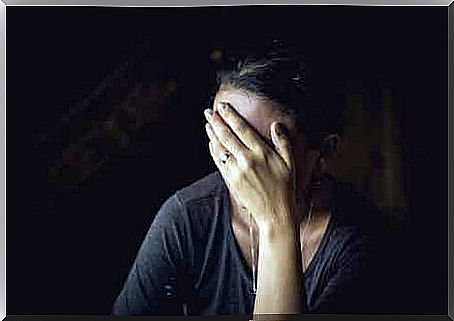
The symptoms of psychotic depression
There is a wealth of scientific information available on schizophrenia, bipolar disorder and non-psychotic depression. But so far, psychotic depression has not received much attention. In fact, studies conducted at the University of Cambridge confirm this fact. Furthermore, they emphasize the need for a better understanding of the etiology of this particular disorder.
Older adults suffer more from this disorder. It is also more common when patients have a family history of psychosis or bipolar disorder. In addition, evidence shows that one in four people admitted to hospital for increased levels of depression shows symptoms of psychotic depression. In fact, it seems that this condition is more common than originally thought. Furthermore, the outcome of the disease is quite worrying.
The Diagnostic and Statistical Manual of Mental Disorders (DSM-5) describes this disorder as a severe form of depression.
The symptoms of psychotic depression
Mood swings
The patient with psychotic depression feels sad, down and depressed. However, they often also show a sense of black humor. In addition, they experience outbursts of anger and rage for no apparent reason.
Low self-esteem and delirium
The patient constantly feels guilty and helpless. Furthermore, they have a clear lack of self-love. These feelings may worsen if the patient feels neglected by family and friends.
The delirium that the patient suffers from makes them feel that they are not loved by anyone. In addition, they feel completely worthless. This is often confusing for the next of kin.
Change in sleep pattern
The patient feels sleepy during the day and is awake at night. Therefore, they experience ongoing changes in their sleep patterns.
Hallucinations that are not in question
They suffer from hallucinations. However, they do not often talk about them. The most common are auditory. For example, they may hear a voice telling them that a particular family member does not love them. In fact, they may even believe that this family member is trying to poison them. They can also imagine that they are suffering from specific diseases that will eventually kill them.
People who suffer from this type of depression are fully aware that it is not normal. That is probably why in so many cases they choose to remain silent about it. However, this obviously makes any diagnosis difficult.
Lack of interest in personal care
The patient with psychotic depression shows a total lack of interest in his personal hygiene. They do not bathe or change clothes. They will probably also neglect housework.
They stop communicating and interacting with their environment
In the most severe cases, the family sees how their relative suffering from this type of depression gradually withdraws from the world. They stop interacting. They do not care about others, and they show no interest in their friends. In fact, their daily lives change completely. Over time, they tend to move less and less. Eventually, they become more or less confined to the bed or sofa, and they almost never get up.

How is psychotic depression treated?
One of the reasons why psychotic depression is not so easily diagnosed is that the patient tends to hide his symptoms. They are aware that the voices and delusions are not normal. Thus, they remain silent about them. However, in some cases the disorders are so intense that they can resort to self-harm or even suicide.
For this reason, it is crucial for the family to know what their relative is dealing with. In fact, an early diagnosis means that in many cases the patient will never reach a severity that is too extreme. Because, as we mentioned earlier, the prognosis for this disorder is good when the disease is diagnosed early enough. The treatment is based on antidepressants and antipsychotics. These regulate the patient’s mood. Furthermore, cognitive behavioral therapy is in most cases very effective. Finally, it is extremely important for professionals to monitor the patient on both a medical and mental basis.
